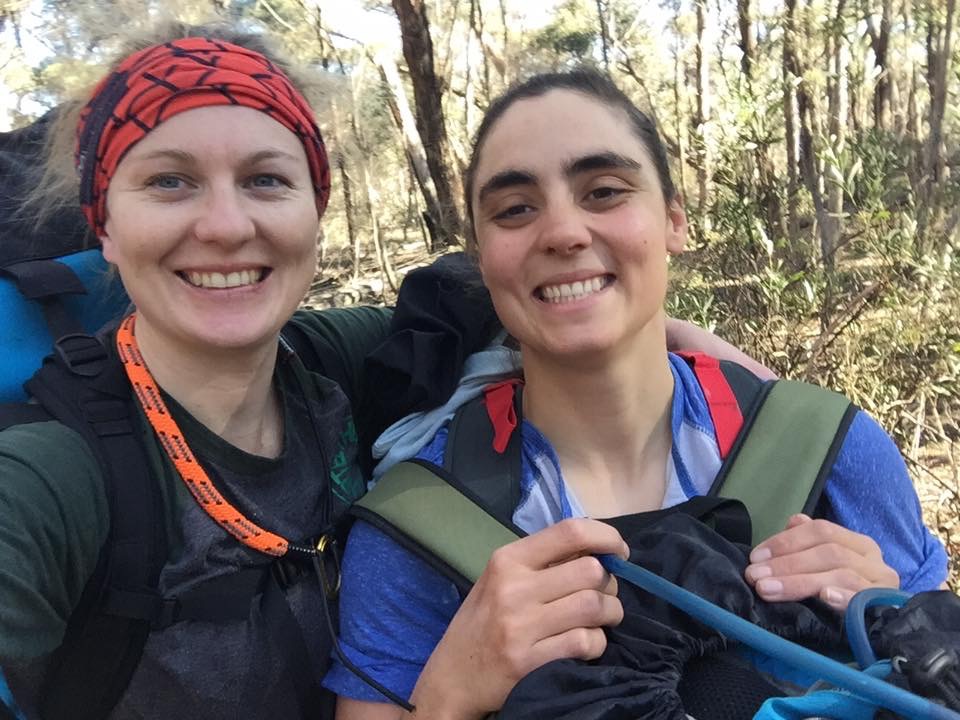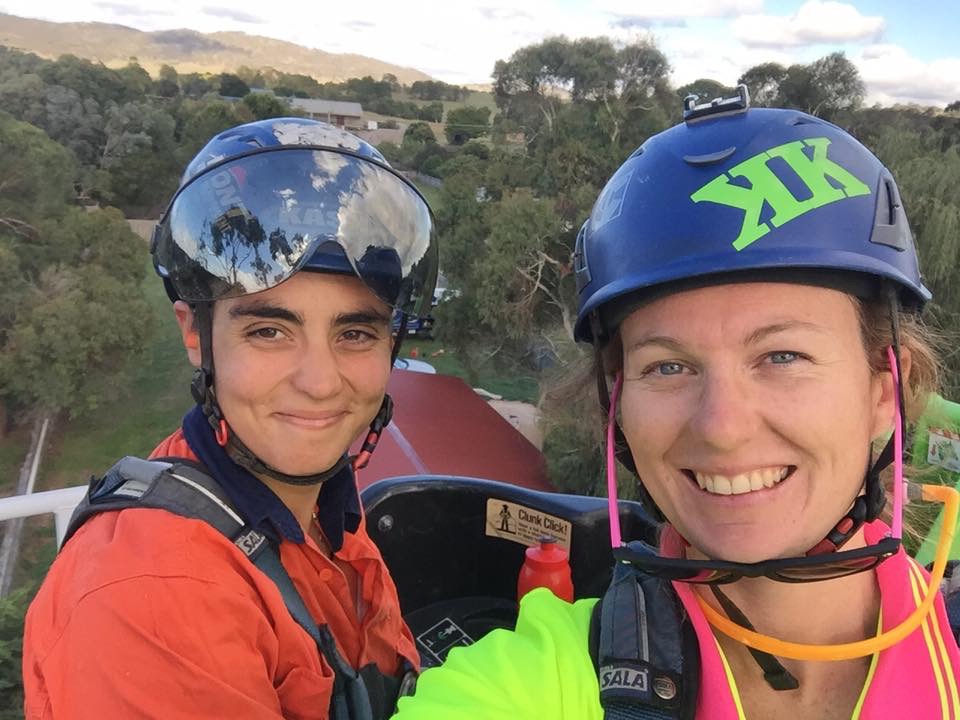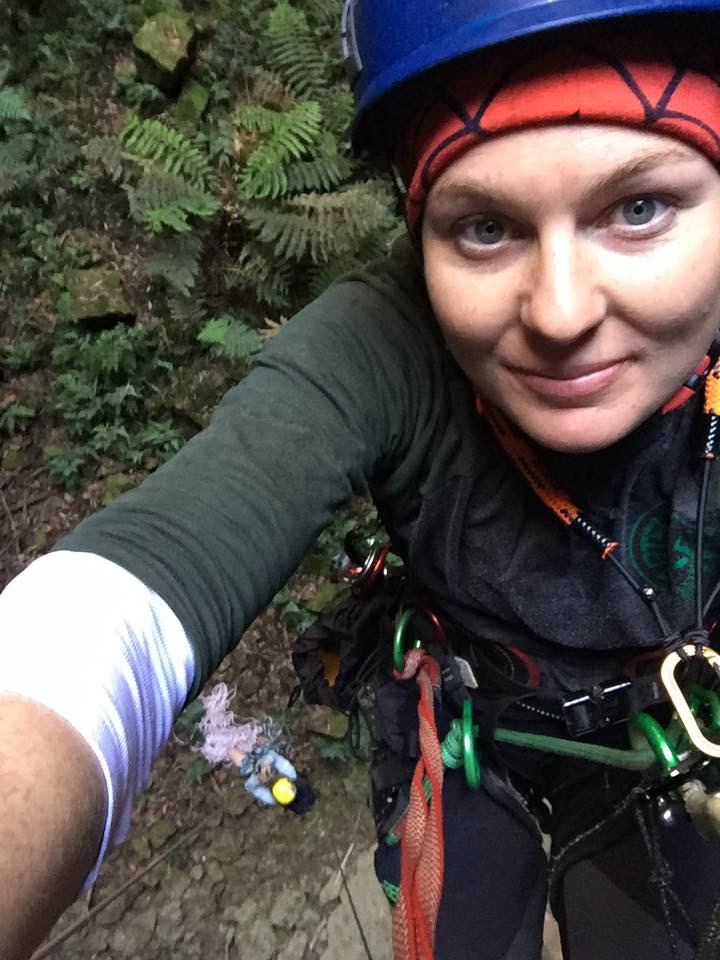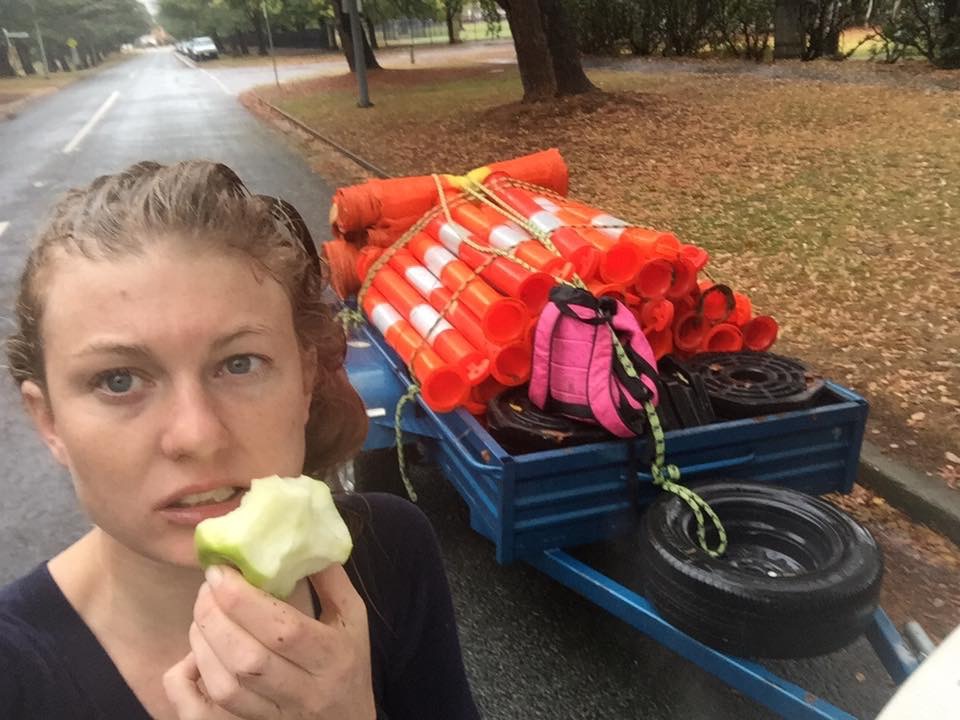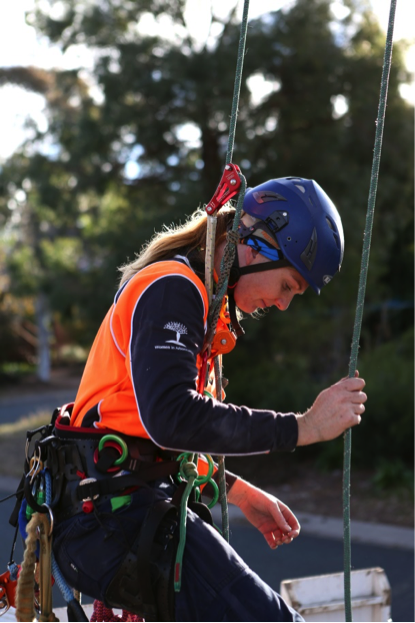Christine Rampling
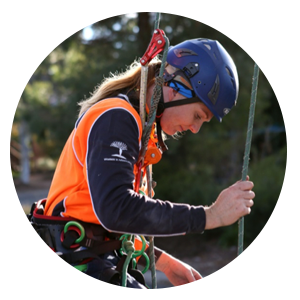
Trade - Horticulture & Arboriculture
Age you entered trade and how
18 years old via a horticulture apprenticeship at Parliament House of Australia. My mum encouraged me to write to the places that I wanted to work at mid-way through year 12. I got a reply from Parliament House advising me they would be advertising in the paper in October that year. I kept buying the newspaper until I found the advertisement. I then applied for the job and got an interview. Sure enough, what was on the table in front of the interview panel but my letter from back in June. My letter helped to communicate my long standing interest in a trade in horticulture and ultimately got me the job.
What attracted you to your trade?
Working physically, working outdoors and working with living things. I loved the idea of studying and earning at the same time. At that young age I was also attracted to not having to dress up to go to work; no makeup, no hair spray, no fancy clothes. I was very happy in a pair of work boots. I was also drawn to the creative side of horticulture with garden design and plant selection. I was three years into my horticulture apprenticeship when I saw some arborists working in a tree and just couldn’t believe they were getting paid to swing around in trees all day long, so I completed my horticulture apprenticeship and switched directions.
What challenges did you face?
Working in a trade sector at the Department of Parliamentary Services didn’t really have a great deal of challenges. Personally, it took some time to settle into an early morning routine and to become ‘work fit’. Using a whole new muscle group and walking the long distances across the large site every day took some getting used to for me. The Department and the people in it foster inclusivity and diversity and I felt welcome, encouraged and valued.
Arboriculture on the other hand was quite a different experience. It didn’t have the inclusive atmosphere and a lot of the time I felt unwelcome and thought of as a bit of a novelty. I don’t have the physical strength to operate large chainsaws aerially for long periods of time and this became a mental barrier for me. Clients, colleagues and employers often doubt my capabilities before even seeing my work and strong emphasis was put on my ‘attention to detail’, ‘strong communication skills’ and ‘expert site clean-up and general housekeeping skills’. Despite being true, I found this frustrating and offensive as I wanted to be recognised for my machinery and vehicle operation, felling, rigging and pruning skills and for my courage, sound judgement, my inventiveness and enthusiasm.
What kept you going?
SALT. I tried to join a few other women in trades type groups but they were either understaffed or ineffective. The day I met Fi Shewring was the day I realised I was not alone and there was a whole network of women just like me already doing what I wanted to do.
My friends and my family were always encouraging and supportive. I am so grateful to have parents who are not opposed to blue collar work and didn’t bat an eyelid when their academic daughter chose a trade rather than university. Meeting other women in my industry was also hugely impactful. Having someone who 100% understands your struggles and successes is so invaluable.
A lot of what kept me going is my own pride, determination and a touch of arrogance. Having tenacity and a bit of pluck to suck it up and keep going goes a long way in the current culture of the trades.
What makes you really proud?
A job well done. Fulfilling on a client’s request and causing the intended result I set out to achieve makes me very proud. A co-operative and effective team is also something that lights me up. When you get to know your crew so well that sometimes you don’t even need to talk and you can predict their movements and have their back without them saying so is a very satisfying experience for me.
What do you believe are the benefits of working in a trade as opposed to more tradition employment?
The flexibility and the limitlessness of direction. A trade certificate in arboriculture can lead you to teaching pruning techniques in Vietnam. You can go anywhere with it. You can teach the trade, you can consult, manage a team, work as a Government or Council Tree Protection Officer. You could move into urban planning, landscape design or even slide into ecology or environmental science.
What do you love most about your trade?
We have Climbing Championships. These are formally organised events that lead to the World Champion Tree Climbing Competition. Other than World Skills, I don’t know of any other trade that celebrates and measures the athletic ability of their members. I also love that you can have such a variation of expertise and passion at a grassroots level. On the same crew you could have three people with the same qualifications but one has a passion and particular skill set for formative pruning, one specialises in removing and dismantling trees and the other is interested in plant health, tree anatomy and soil.
What triumphs have you had?
Completing my Diploma of Arboriculture still brings me elation when I think about it. I found it so confronting and so challenging yet so wonderful all at the same time.
In 2015 I was in the second year of my Diploma, studying for my Certificate IV in Training & Assessment, obtaining my Quantified Tree Risk Assessment Licence whilst running my own business and teaching at CIT casually. That was a particularly jam packed year and I am very proud of all of these achievements.
In 2016 I won the Outstanding Achievement in Industry Award from NAWIC – the National Association for Women in Construction – for my work in creating and running the first ACT Tree Climbing Championships. I was also awarded the Arboriculture Australia Volunteer Contribution Award for my efforts.
What do you do in your spare time.
I just got myself a Firearm’s Licence so I am looking to start learning how to use a rifle on the local target shooting range. I am also a bit of a crazy dog lady so I do a lot of stuff with my dog Tilly, like hikes, walks, dog parks, river swimming etc. I am a bit of an association junkie and do quite a it of volunteer work with SALT, the Australian Capital Tree Community (ACTC) and I am a live-in house mentor at Apprentice House. I am saving for a house at the moment because I just love growing my own edible plants, I cannot wait for the day that I am tending to my own vegie garden and picking my own apples.


